#doubt underworld
Photo

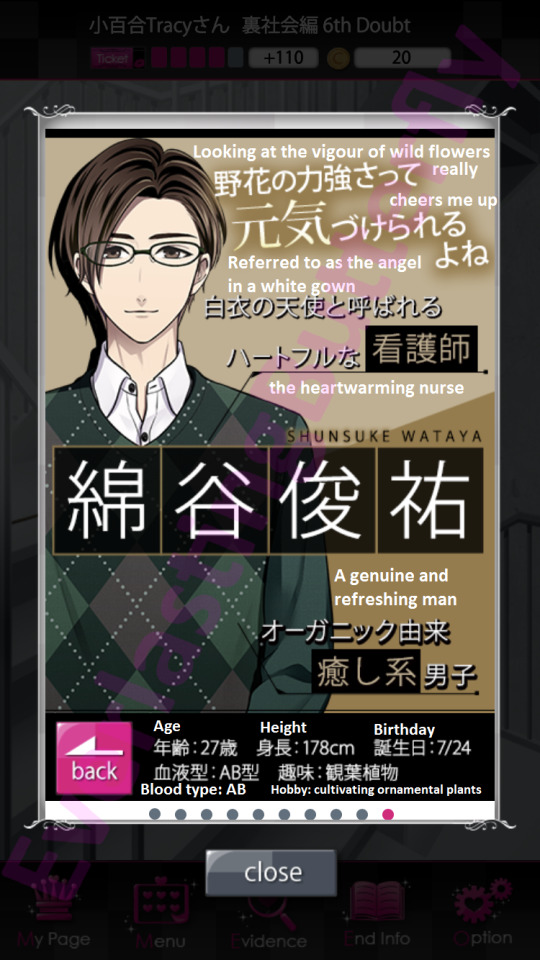

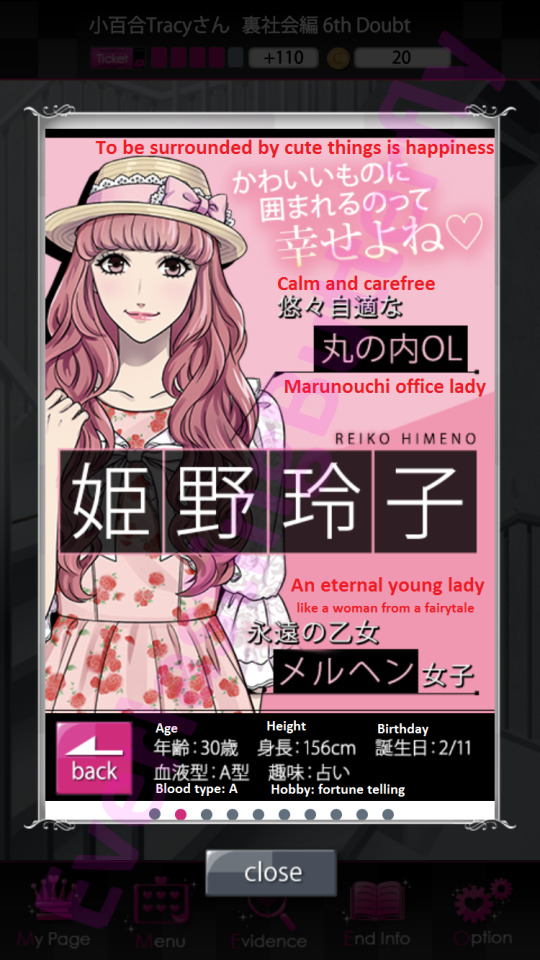

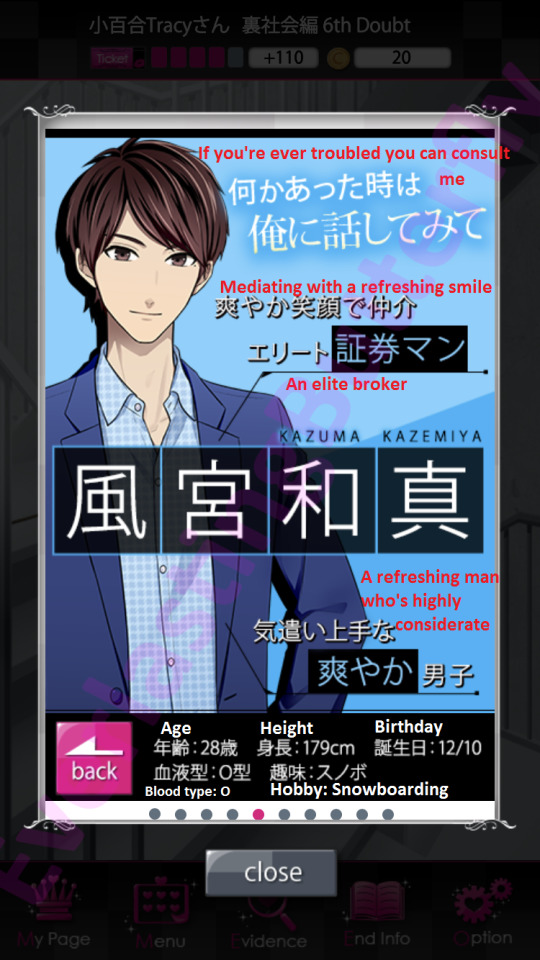
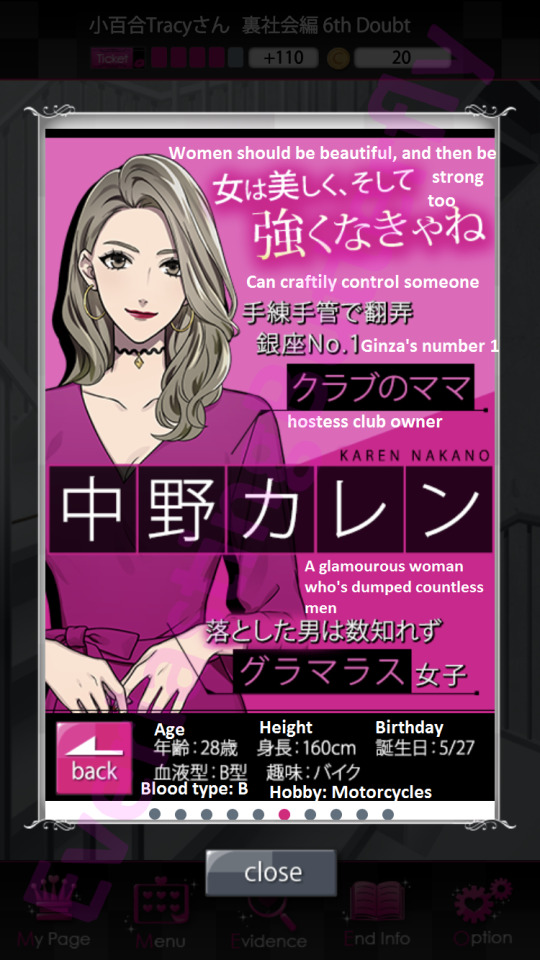
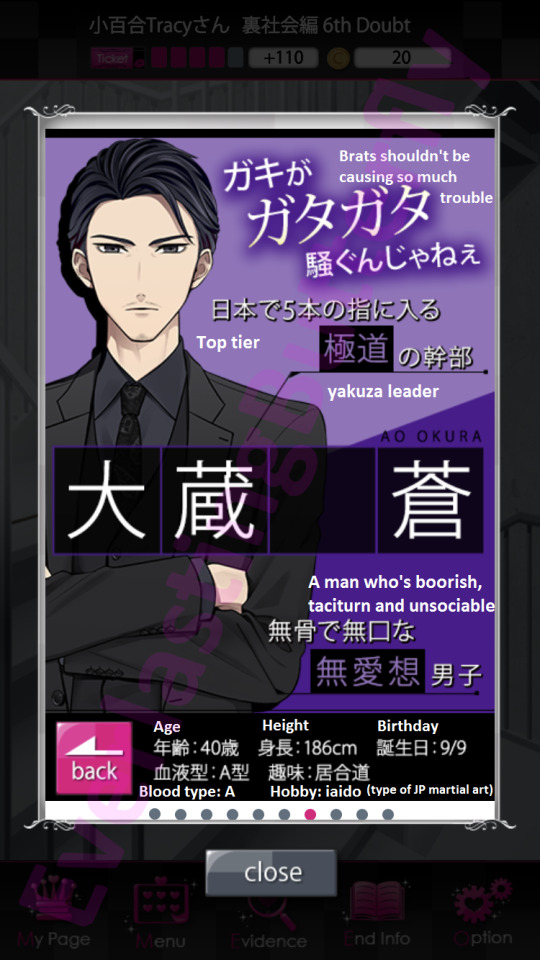


Doubt season 4 character profiles
#liar#liar voltage inc#voltage inc#ダウト#doubt season 4#ダウト~貴女はダークな嘘が好き?~#裏会社#doubt translation#裏会社 translation#doubt underworld#doubt dark lies#yuu-kun#yuki kamakura#reiko himeno#hime-chan#karen#karen nakano#yoichi tokiwa#tokiwa-kun#ao okura#ao#okura#liar uncover the truth#liar!#liar! voltage inc
14 notes
·
View notes
Text
Orpheus and Odysseus looking at each other as they venture through the underworld for different reasons

They both are doing this for their wives and to get them back/get back to them though so-
#The real reason Orpheus looked back was because he was confused by Odysseus and his crew#Epic the musical#hadestown#orpheus#odysseus#doubt comes in#epic the underworld saga
971 notes
·
View notes
Text

Inspirered by art I saw from @sparky-draws and also this fic, I decided to do some ghoap warrior cats designs of my own 🐱
#ghostsoap#soapghost#my art#cod warrior cats au#doodle#check out those folks and their work!! it’s lovely#yea I was a warriors kid#feel free to use these designs if u wanna draw ghoap cats#I doubt I’ll draw them again as I’ve drawn enough cats for a lifetime lol#soaps design might be my fav cat design I’ve ever done he’s so skrunkly#(elm is often associated w the underworld in mythology which I feel fits Ghost’s vibe)#(but actually it’s just so soap can call him Elm tree (Lt.) bc I am silly)
733 notes
·
View notes
Text
I have had one (1) drink and am drowning in thoughts of Kevin learning that the Moriyama’s killed his mother and showing up on Neil and Andrew's door ready to do whatever it takes to shut them down and take them out
#spoiler: they do#im too tipsy to think through the how or details#but the fbi is involved and so are some secret interviews with choice bloggers who spread the seeds of doubt with the public#maybe a crime podcast or two who do some deep dive sleuthing into the moriyama underworld#and frankly uncover WAY more than kevin or neil knew about#and its all just so damning and public#and one day years down the line#kevin stone cold sober takes the stand against Ichiro Moriyama without a single crack in his voice or tremble in his hand#and as they leave the courthouse wymack hugs him so tightly his lungs hurt#but not his heart#aftg#kevin day#neil josten#andrew minyard#all for the game
93 notes
·
View notes
Text
the way that demeter is one of the most powerful deities on olympus and doesn't receive the recognition she deserves for it is a mighty shame
#the way that she is the earth the same way that zeus is the sky and poseidon is the sea and hades is the underworld#how pontus and ouranos and erebos all came first but no one doubts that the big three can still be powerful as the next gen#gaia might have been first but demeter is the next gen of the earth and deserves to be seen as JUST as powerful as her brothers#because she is and everyone is lucky winter is simply a sign of her grief and not her rage#because if it was the latter everyone would be FUCKED
83 notes
·
View notes
Text
*FONTAINE SPOILERS*
Y'all laugh at the fact that Tartaglia randomly falling into the Abyss one day as a kid ended up being the catalyst for Fontaine's eventual predicted destruction but all this means is that from the start Tartaglia was intended to fall into the Abyss and become a Harbinger and thus has always been doomed by the narrative
#genshin impact#childe#tartaglia#kind of helps line up his story i think#gives it more purpose than just “he fell in a hole by accident and that hole happened to be the frickin pits of the underworld”#doomed to fall into the abyss and wake up the whale. doomed to be trained by skirk and become a harbinger and eventually meet the traveler#DO YOU SEE WHERE I'M GOING WITH THIS#i'm honestly so so curious if they're gonna have him start to doubt his values eventually#i am desperately hoping he has a moment where he has to choose when we inevitably fight the tsaritsa#AND HECK I HOPE HE STICKS WITH US#i really don't want my boy to be SO doomed by the narrative that he frickin DIES >:(#people say he has a lot of death flags and that's kind of true but i think he's safe since he's a playable character#i know playability is totally different from the canon versions of the characters but still#it'd be quite strange to play as a dead guy who doesn't exist anymore and has no further value to the story#can't believe i'm gonna have to wait two frickin years for snezhnaya. unfair#anyway who's excited for the interlude chapter and the inevitable dainsleif comebaaaack
52 notes
·
View notes
Text
Persephone Is in the Underworld During the Summer, Not the Winter - Tales of Times Forgotten
#persephone#ancient greece#article#I have doubts about this theory but it makes a lot of sense#even though I think in an Orphic Hymn it is said that Persephone is kidnapped in the autumn#and in the Homeric Hymn to Demeter Persephone's return from the underworld is associated with the flowers of spring#so idk but I'm intrigued
6 notes
·
View notes
Text


“Darkness becomes light, light falls into darkness”
I know it’s on the nose but I love this tagline for ddd. It’s Sora and Riku’s journey summed up right there. But it’s not just about ddd, this is their whole relationship. Yin and yang are never static, they are always chasing each other, changing into each other . That is why in the symbol, light contains a seed of darkness and darkness contains a seed of light.
#soriku#I mean it’s literally right there on the cover art too#Darkness becomes light#Riku rising#light falls into darkness#Sora falling#and surprise surprise who is the literal light in kh3#HMMMM#and Sora has yet to really deal with his own darkness#but there’s no doubt he will#kh4 is his journey into the underworld#into his own darkness
145 notes
·
View notes
Text
Way Down Hadestown - Lillias White as Hermes
youtube
#hadestown#hadestown broadway#lillias white#i love this number so much#the ominous introduction of hades#hermes going full narrator mode and everyone addressing the young lovers#persephone gearing herself up to have to be in the underworld#and doing that floppy dance thing#then orpheus and eurydice clinging to each other in horror#hades entrance with he 'i missed ya'#then eurydice so intrigued by his wealth and how that must translate to survival#hades taking notice of her as a target to lure her into the underworld#and orpheus jumping in between to protect her but also this must have been his first seed of doubt about eurydice's love for him#just !!!!#way down hadestown#Youtube
13 notes
·
View notes
Text
today, for some reason, I gave an irl all the information she needed to find me on tumblr (without a url). so o-rod if you’re seeing this: you liar you said you weren’t gonna look me up
#quil’s unholy underworld#this is mostly me reflecting being like huh. what a random action to take#to be fair she brought up tumblr first#but anyway! there is someone out there who could. at any time. find my tumblr#someone who knows me irl#the only other person who has that knowledge is my partner#and one person from 8th grade I think but I doubt they remember#so huh. did not expect that to happen today
12 notes
·
View notes
Text
mmmmmmm I have discovered a feeling even more unpleasant than people slapping down my notp ships in the tags of my shitposts, and it's when people slap down tags drawing the exact opposite interpretation of what I was going for in my screencap art posts
#no!! the 'doubt comes in' screencap post is not about lxc coming to realize that jgy's goodness was never there!!#it's literally about him second-guessing what was true on their shared journey out of the metaphorical underworld together#during the guanyin temple confrontation#it's about the slow and agonizing journey out of hell and trusting the real parts of the bond that join them together#and when doubt comes in to strip the paint#('oh no sect leader look out behind you!!!')#orpheus looks back#/stomps around in a huff
13 notes
·
View notes
Text

not to psychoanalyse myself on main but I think this actually breaks down why reishi speaks to me specifically because I interpret post-canon Karasuma as a career-oriented man with this vague Greater Purpose of Making Things Better for Birdmen and like. I'm a known projector onto eishi and it's like yeah. can you handle it? can you handle me sitting at my desk for weeks just drawing and drawing and drawing, rarely ever getting to have fun and spend quality time with me? can you handle the constant parallel play we're going to go through? are you going to be okay with the fact that you will not be my greatest priority because I have this nebulous Greater Purpose in life?
I do really like takaeishi in canon because I think eishi DOES need that lesson in accepting uncertainty and becoming more flexible and able to compromise. it's the culmination of his whole character arc, finally setting boundaries without controlling the other person by changing his own behavior (I won't tell you not to go BUT I am letting you know I can't go with you) and I have no complaints there. I think it's an important sort of narrative to tell, that these two guys might love each other but are still able to draw that line between "being reasonably devoted to you" and completely giving up on your own values in a love-conquers-everything finale
but I think that's why it doesn't really scratch the sort of wish fulfillment I personally crave because it's not the bit about going to the next world that's negotiable. I know I'm going there. I am asking you to go there with me. I crave the comfort of knowing I have someone who will stand in my corner no matter what
at the same time I understand it's not a glorious thing. the idea of having someone like that doesn't make me happy, per se. I'm very well aware that it's a tragedy, not just for Sagisawa but for Karasuma as well. like obviously the part where Sagisawa is perpetually mildly dissatisfied and unfulfilled in this relationship, but also. I'm so sorry I can't love you the way you want me to and the way you deserve to be loved. I think it's why Karasuma ends up aromantic in these situations because I don't really know how to narratively express this feeling I have of "loving you but not right or not enough"
but yeah basically i think takaeishi is about accepting uncertainty and changes in your partner and knowing when you've walked as far as you can go with it, while reishi is about being okay with walking down that path until the very end despite everything you'll lose. because even when you've been abandoned by your god, you'll always have your dog. you know?
#just thinking thoughts...#crazy. i think I'm onto something.#just so you know i also think Karasuma could lead Sagisawa out of the underworld if he were Orpheus#but in a totally different manner than Takayama leading Karasuma out#takayama can do it because he has full confidence in himself. the idea of doubt is nearly preposterous#while Karasuma can do it because he believes in Sagisawa. like yes i think you will follow me out because i think you're this kind of person#does that make sense. does it make sense.#I'm going crazy it's 5 am
4 notes
·
View notes
Note
He also has a recording booth now which helps a lot when you can record and edit at home.
That is true! And so I’m sure we will get the next saga before the end of the year, I just think Mr. Jalapeño deserves a break before the next saga!
#Epic the musical#epic the underworld saga#I highly doubt it would be easter#That’s less then 40 days away
43 notes
·
View notes
Text



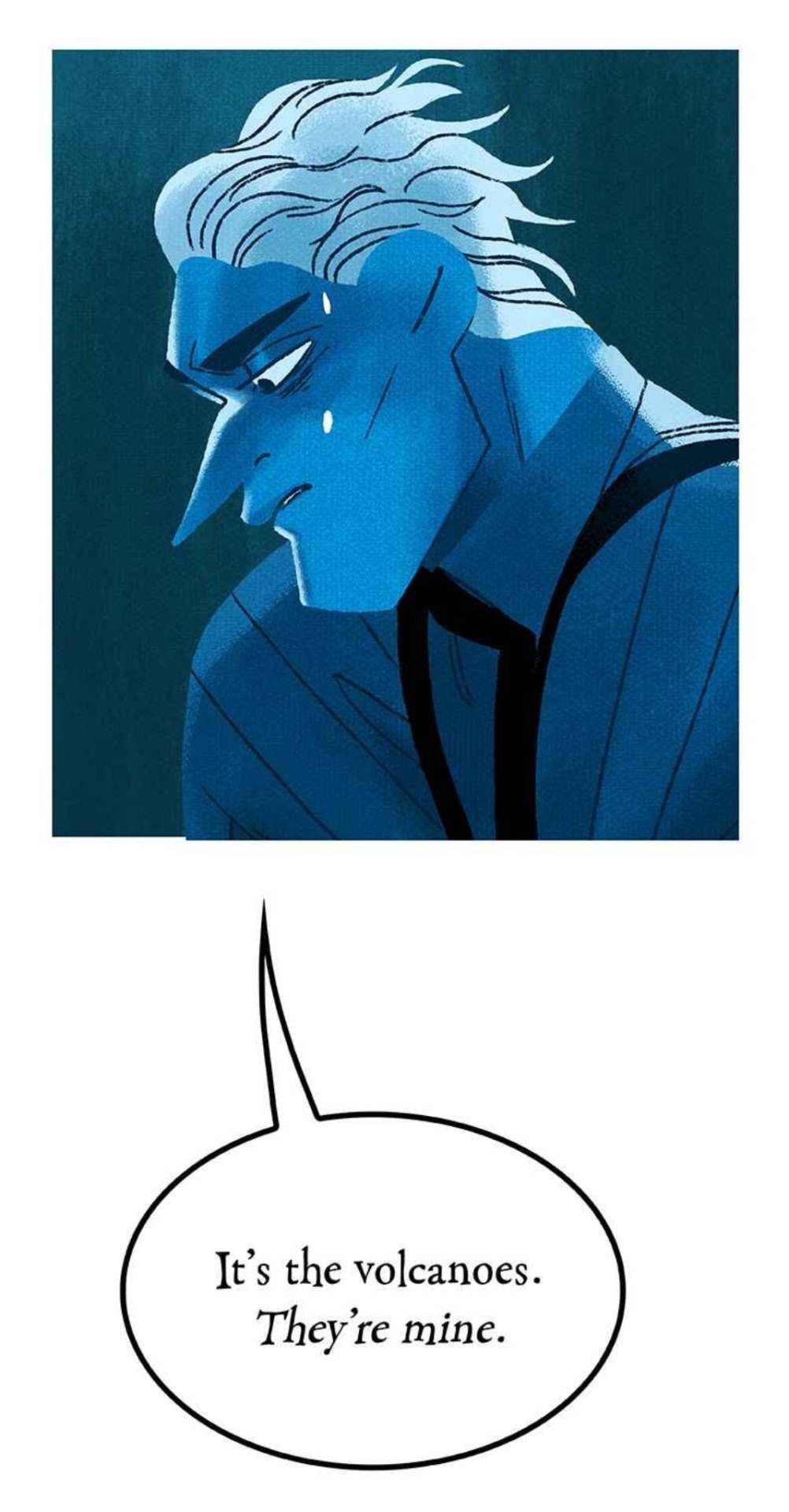
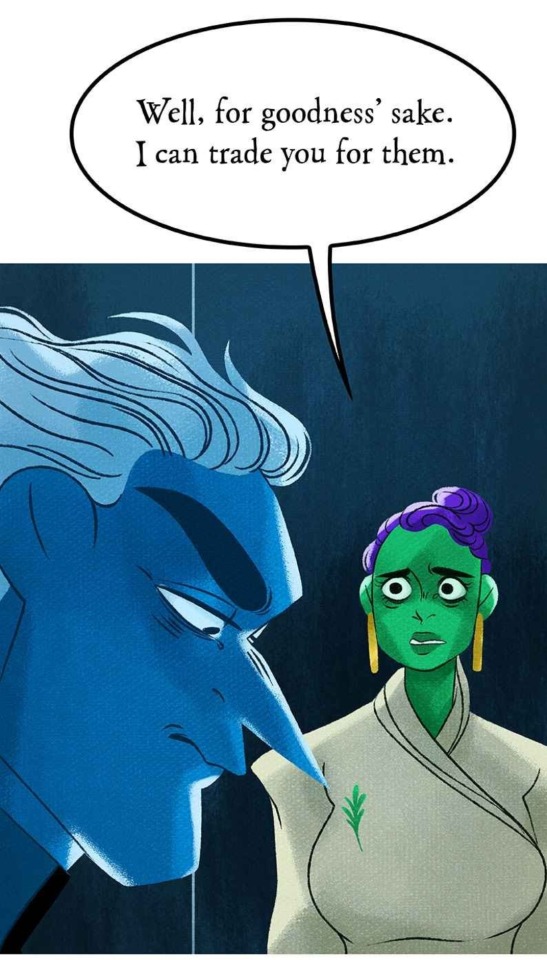


Oh it's so much more than volcanos.
#lore olympus#lo hades#lo demeter#obviously Hades doesn't want to lose something of his but I feel like there's more to it than simply the volcanoes#the reason could be that the volcanoes are not only the portals to the underworld but also leads to the mortal realm#one of the few places that he is still connected to the world above and I doubt he'll get rid of it for some money#you cant put a price on happiness#side note#but didn't demeter say she blamed zeus for not making her queen during thr trial until it was revealed it was hades#weird
23 notes
·
View notes
Text
poliziano wishes he could write an orpheus and eurydice musical that hits as hard as this one
#kara’s unsolicited song recs#tonight i am Angry about poliziano’s half-arsed little play#like yes the lyricism was v nice there were some good lines i didn’t hate it entirely#BUT!!!!!! the walking out of the underworld bit was the most disappointing thing i’ve ever read#literally twelve lines said on that walk and then it’s just over.#where was the turmoillll???? the doubt????? the fucking stage directions so i could actually tell when exactly he had looked back#where was it?!?!?!?!!! where?!?!?!?!?#anyway.#kara’s uni shit
0 notes
Text
In the past I've shared other people's musings about the different interpretations of the myth of Orpheus and Eurydice. Namely, why Orpheus looks back at Eurydice, even though he knows it means he'll lose her forever. So many people seem to think they've found the one true explanation of the myth. But to me, the beauty of myths is that they have many possible meanings.
So I thought I would share a list of every interpretation I know, from every serious adaptation of the story and every analysis I've ever heard or read, of why Orpheus looks back.
One interpretation – advocated by Monteverdi's opera, for example – is that the backward glance represents excessive passion and a fatal lack of self-control. Orpheus loves Eurydice to such excess that he tries to defy the laws of nature by bringing her back from the dead, yet that very same passion dooms his quest fo fail, because he can't resist the temptation to look back at her.
He can also be seen as succumbing to that classic "tragic flaw" of hubris, excessive pride. Because his music and his love conquer the Underworld, it might be that he makes the mistake of thinking he's entirely above divine law, and fatally allows himself to break the one rule that Hades and Persephone set for him.
Then there are the versions where his flaw is his lack of faith, because he looks back out of doubt that Eurydice is really there. I think there are three possible interpretations of this scenario, which can each work alone or else co-exist with each other. From what I've read about Hadestown, it sounds as if it combines all three.
In one interpretation, he doubts Hades and Persephone's promise. Will they really give Eurydice back to him, or is it all a cruel trick? In this case, the message seems to be a warning to trust in the gods; if you doubt their blessings, you might lose them.
Another perspective is that he doubts Eurydice. Does she love him enough to follow him? In this case, the warning is that romantic love can't survive unless the lovers trust each other. I'm thinking of Moulin Rouge!, which is ostensibly based on the Orpheus myth, and which uses Christian's jealousy as its equivalent of Orpheus's fatal doubt and explicitly states "Where there is no trust, there is no love."
The third variation is that he doubts himself. Could his music really have the power to sway the Underworld? The message in this version would be that self-doubt can sabotage all our best efforts.
But all of the above interpretations revolve around the concept that Orpheus looks back because of a tragic flaw, which wasn't necessarily the view of Virgil, the earliest known recorder of the myth. Virgil wrote that Orpheus's backward glance was "A pardonable offense, if the spirits knew how to pardon."
In some versions, when the upper world comes into Orpheus's view, he thinks his journey is over. In this moment, he's so ecstatic and so eager to finally see Eurydice that he unthinkingly turns around an instant too soon, either just before he reaches the threshold or when he's already crossed it but Eurydice is still a few steps behind him. In this scenario, it isn't a personal flaw that makes him look back, but just a moment of passion-fueled carelessness, and the fact that it costs him Eurydice shows the pitilessness of the Underworld.
In other versions, concern for Eurydice makes him look back. Sometimes he looks back because the upward path is steep and rocky, and Eurydice is still limping from her snakebite, so he knows she must be struggling, in some versions he even hears her stumble, and he finally can't resist turning around to help her. Or more cruelly, in other versions – for example, in Gluck's opera – Eurydice doesn't know that Orpheus is forbidden to look back at her, and Orpheus is also forbidden to tell her. So she's distraught that her husband seems to be coldly ignoring her and begs him to look at her until he can't bear her anguish anymore.
These versions highlight the harshness of the Underworld's law, and Orpheus's failure to comply with it seems natural and even inevitable. The message here seems to be that death is pitiless and irreversible: a demigod hero might come close to conquering it, but through little or no fault of his own, he's bound to fail in the end.
Another interpretation I've read is that Orpheus's backward glance represents the nature of grief. We can't help but look back on our memories of our dead loved ones, even though it means feeling the pain of loss all over again.
Then there's the interpretation that Orpheus chooses his memory of Eurydice, represented by the backward glance, rather than a future with a living Eurydice. "The poet's choice," as Portrait of a Lady on Fire puts it. In this reading, Orpheus looks back because he realizes he would rather preserve his memory of their youthful, blissful love, just as it was when she died, than face a future of growing older, the difficulties of married life, and the possibility that their love will fade. That's the slightly more sympathetic version. In the version that makes Orpheus more egotistical, he prefers the idealized memory to the real woman because the memory is entirely his possession, in a way that a living wife with her own will could never be, and will never distract him from his music, but can only inspire it.
Then there are the modern feminist interpretations, also alluded to in Portrait of a Lady on Fire but seen in several female-authored adaptations of the myth too, where Eurydice provokes Orpheus into looking back because she wants to stay in the Underworld. The viewpoint kinder to Orpheus is that Eurydice also wants to preserve their love just as it was, youthful, passionate, and blissful, rather than subject it to the ravages of time and the hardships of life. The variation less sympathetic to Orpheus is that Euyridice was at peace in death, in some versions she drank from the river Lethe and doesn't even remember Orpheus, his attempt to take her back is selfish, and she prefers to be her own free woman than be bound to him forever and literally only live for his sake.
With that interpretation in mind, I'm surprised I've never read yet another variation. I can imagine a version where, as Orpheus walks up the path toward the living world, he realizes he's being selfish: Eurydice was happy and at peace in the Elysian Fields, she doesn't even remember him because she drank from Lethe, and she's only following him now because Hades and Persephone have forced her to do so. So he finally looks back out of selfless love, to let her go. Maybe I should write this retelling myself.
Are any of these interpretations – or any others – the "true" or "definitive" reason why Orpheus looks back? I don't think so at all. The fact that they all exist and can all ring true says something valuable about the nature of mythology.
#mythology#greek mythology#orpheus#eurydice#orpheus and eurydice#analysis#interpretations#adaptations#long
23K notes
·
View notes